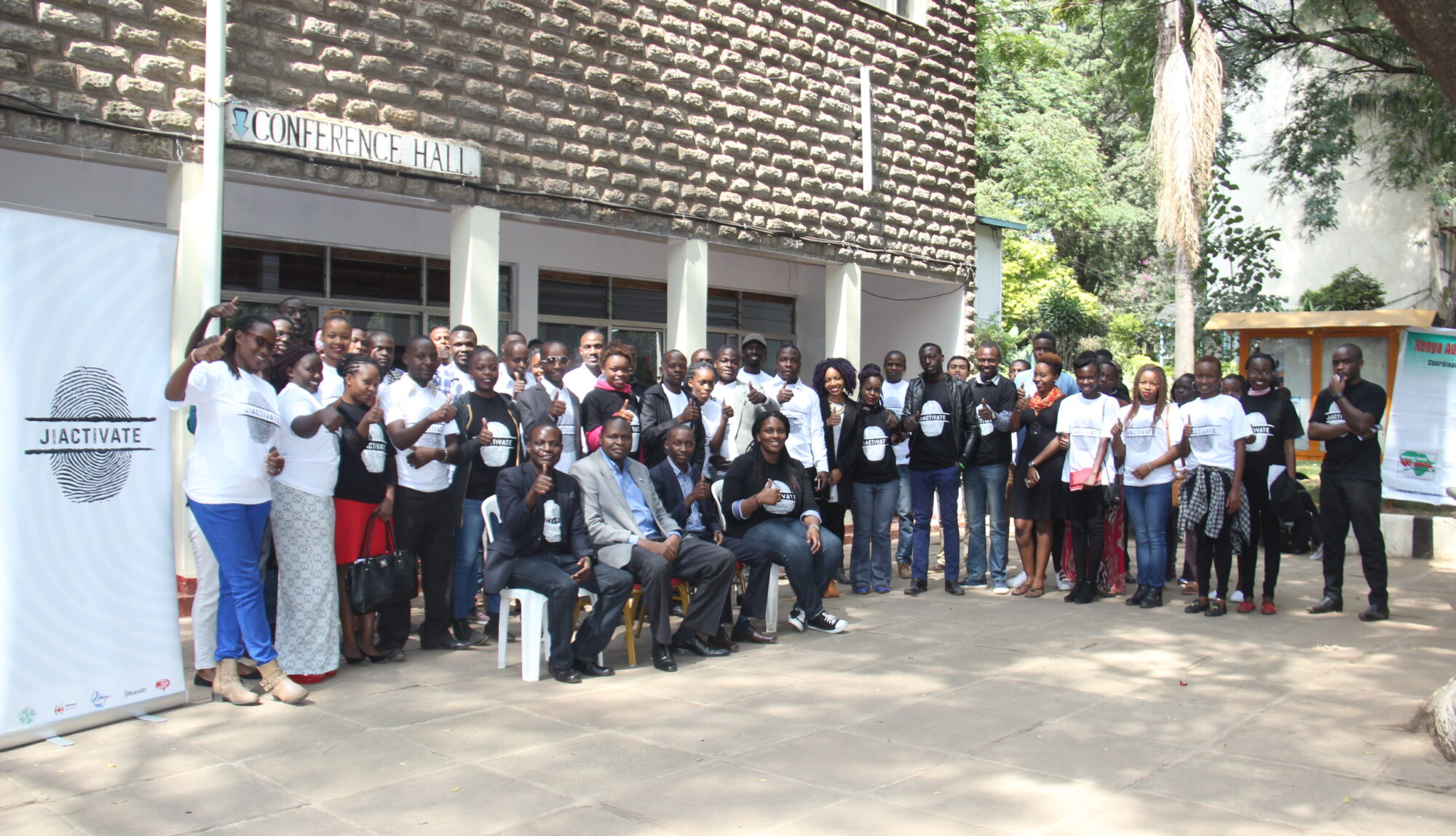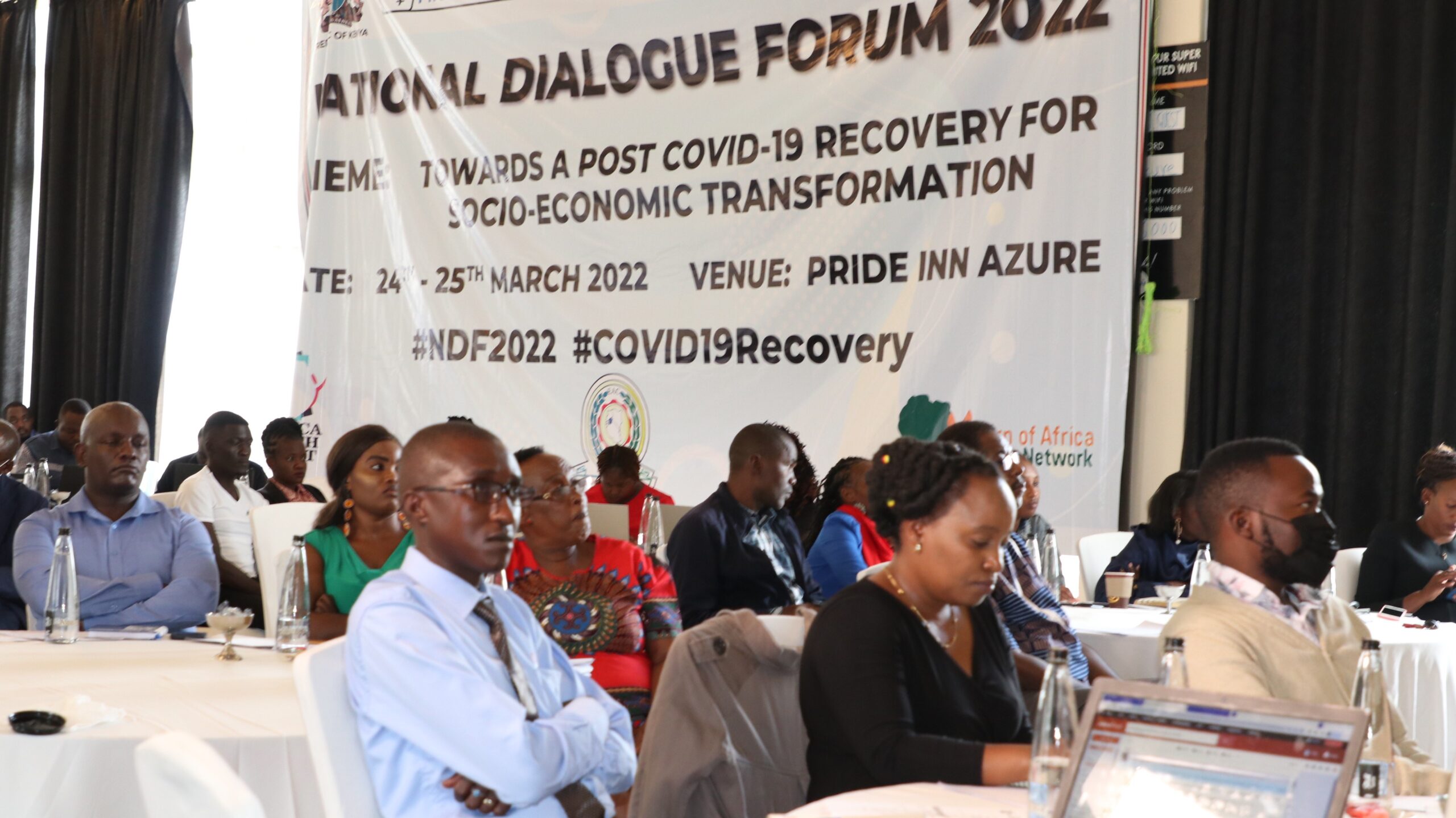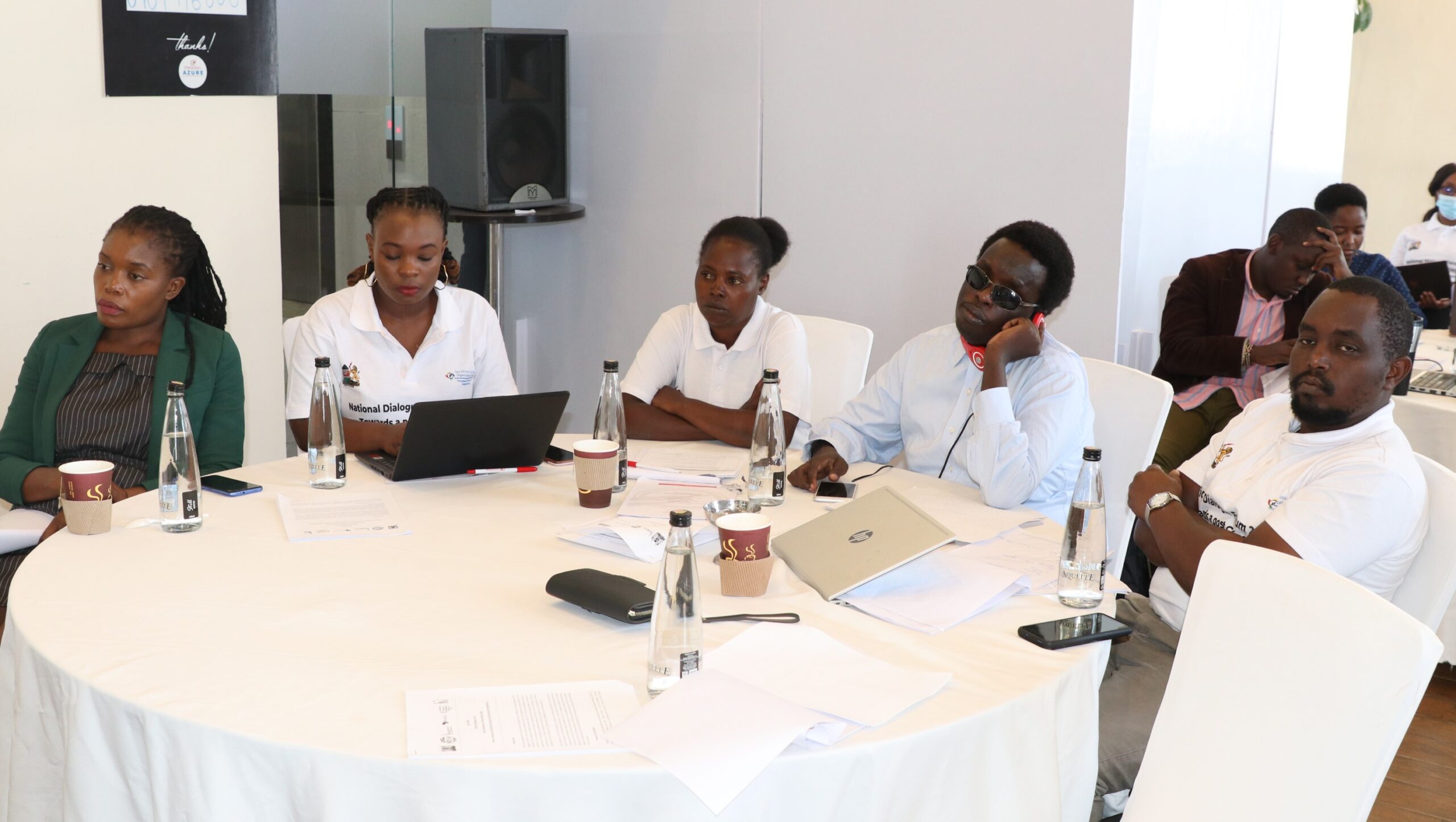Towards a Post COVID-19 Recovery for Socio-economic Transformation- National Dialogue Forum 2022.
Published by Dolphine Allaro on



It has been two years since the COVID-19 pandemic struck the world causing widespread devastation in all sectors. The global economy was severely impacted. Despite various global challenges, most countries are looking forward to a post-COVID-19 recovery. This national dialogue forum was organized by the National Dialogue Committee, with the coordination of the State Department for the East African Community, as a space for CSOs and private sector organizations to participate in the integration process. The treaty that established the EAC emphasizes citizen participation in the integration.
This national dialogue forum was an implementation of the consultative dialogue forum adopted by the Council of Ministers at its 26th meeting. Participants in this dialogue forum included representatives from the private sector, civil society, youth groups, and other interest groups, as well as representatives from EAC ministries. The theme of the conference was “Towards a Post-COVID-19 Recovery for Socioeconomic Transformation”. The discussion was centered on socioeconomic factors affecting state partners, including the private sector and CSOs, and recommendations for post-COVID-19 recovery. The following measures for ensuring post-COVID-19 recovery for socio-economic transformation were discussed:
Redirecting anti-corruption efforts to address gender and other inequalities. Corruption has a negative impact on women’s and other marginalized groups’ participation; it entrenches gender and other inequalities, undermining efforts to empower them. Policymakers must be better informed about the different effects of corruption on men and women, as well as other groups in order to design more targeted and effective anti-corruption policies. This includes fostering women’s agency in the fight against corruption, using gender-disaggregated data to design gender-responsive anti-corruption policies, taking steps to mitigate the gendered impact of corruption through policies that address both gender inequalities and corruption, and recognizing and devising ways to combat and ensure accountability for all forms of corruption.



Removing barriers to free movement of goods, services, and person’s through digital trade. To unlock and protect the potential benefits of digital trade, all relevant stakeholders within and outside the EAC region must be involved. The African Continental Free Trade Area (ACFTA) is expected to have a significant impact on the continent’s manufacturing and industrial development, as well as a catalytic effect on Africa’s emerging digital economy, specifically cross-border electronic commerce. This necessitates broad-based, concerted action, as well as capitalizing on the enormous opportunities provided by digital trade. This can be accomplished by implementing the appropriate policies, frameworks, systems, and strategies at the continental and national levels to address the challenges of digital trade.
According to the WHO Global Health Estimate report for 2019, non-communicable diseases account for seven of the top ten causes of death worldwide. One of the four major risk factors for NCDs is the consumption of unhealthy diets containing industrially produced Trans-fatty acids. In accordance with the WHO global agenda, the International Institute of Legislative Affairs proposed a regional policy intervention to regulate trans-fats. This will result in increased health benefits for the citizens of the partner countries, as well as a reduction in the financial burden that governments must bear in order to treat NCDs caused by unhealthy diets.



Domestic resource mobilization in EAC: Illicit financial flows in the extractive sectors in the EAC. Illicit Financial Flows drain resources from sustainable development, as well as worsen inequalities, fuel instability, undermine governance, and damage public trust. Legal policies and institutional mechanisms should be put in place to curb these Illicit Financial Flows in all sectors, particularly the extractive sector. This was in accordance with the motion that was passed by the East Africa Legislative Assembly in May 2021 to stop illicit financial flows in the extractive sector in EAC. The council of Ministers was therefore called to consider and adopt the same motion for implementation of all EAC partner states.
The EAC lags behind in terms of gender-responsive budgeting, both in terms of priorities and the allocation of adequate budgets for key gender priority sectors. As a result, women, youth, and people living with disabilities are underrepresented in the labor force, which has a negative impact on the EAC’s economic development. In order to accelerate COVID-19 recovery and resilience, the University of Nairobi Women Economic Empowerment Hub recommended institutionalizing Gender Responsive Budgeting at the national and regional levels, to ensure that gender needs are taken into account in resource allocation by Kenya and EAC partner states.